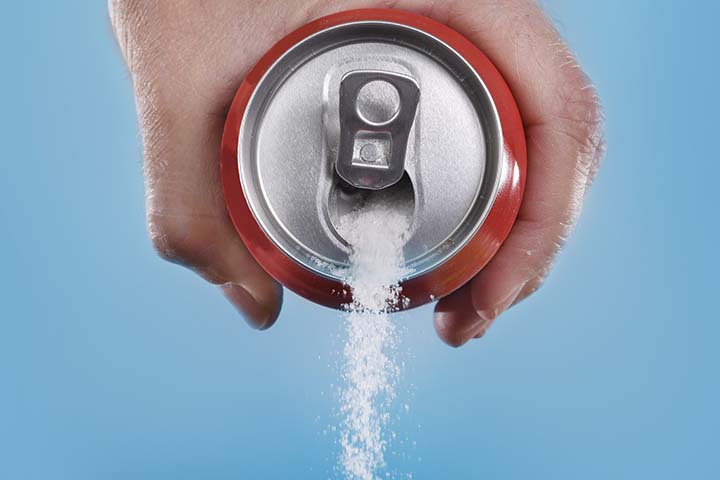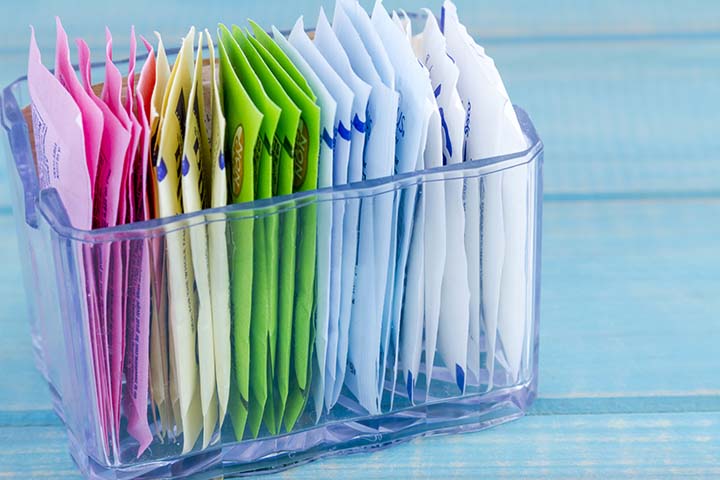27 Apr 2021
Sugar: Not So Sweet After All?
Estimated read time: 5 minutes
Sugar is a two-faced ingredient. On one hand, it has an irresistible sweetness that we can enjoy and find comfort in when we’re sad or upset. On the other hand, sugar bears the mark of a “carbohydrate” on its tiny particles, linking it to weight gain, diabetes, and heart disease.
Considering both sides, does the body really need sugar?
What Is Sugar?
Sugar is a type of carbohydrate that occurs naturally in many foods. Fructose, for instance, is a kind of sugar found in fruits and vegetables. But the processed foods industry adds sugar not only to products that are supposed to be sweet, like cakes, donuts, and candy, but to almost everything else: from cereals and crackers to yogurts, breads, salad dressings, pastas, sports drinks, and even pickles.
For example, a 12 oz. bottle of non-diet soda has 40 grams of sugar (equivalent to 10 teaspoons) and 150 calories.

This type of sugar, known as added sugar, tends to be the reason many people consume excess amounts of the carbohydrate, without even noticing it.
The industry isn’t just adding sugar on a whim. This ingredient is used in the production of a wide range of foods, not only to make them sweeter and more attractive but also, among other uses:
- As a preservative, especially in jams and jellies
- To accelerate the fermentation process
- To counteract intense or sour flavors (balancing the acidity of vinegar and tomato in ketchup, for example)
According to the Dietary Guidelines for Americans, for anyone 2 years of age and older, sugar should account for 10% or less of their total daily calories. That means that in a 2,000-calorie diet, no more than 200 calories per day should come from added sugar (equivalent to 12 teaspoons.)
Does the body need sugar?
The human body uses carbohydrates as a source of energy. It breaks down foods that contain sugar and transforms those carbohydrates into a substance called glucose that then enters the bloodstream.
The brain, central nervous system, and even red blood cells “eat” a little bit of this glucose: a small amount of the substance is necessary for them to function properly. But according to the American Heart Association (AHA), our bodies do not need added sugars to be healthy.
Too much of this carbohydrate can lead to serious health problems. Added sugar is digested and absorbed quickly, causing a spike in blood sugar levels because the pancreas struggles to keep up with the demand to release insulin, a hormone that controls blood sugar.
Excess sugar can also trigger inflammation in the body, the cause of dozens of diseases; as well as increase dopamine levels in the brain, producing a pleasurable and addictive sensation that keeps us coming back for more.
Finally, sugar intake is directly tied to cavities in the teeth.
A Good PR Strategy
For decades, the sugar industry has employed clever marketing strategies that point to fats as the main culprit in the rise of chronic conditions. This strategy shifted attention away from sugar, which is often disguised in product ingredient lists under alternative names, AHA warns: corn syrup, invert sugar, malt sugar, molasses, and syrup, among others.
The unknowing consumption of sugar is a global phenomenon, and is partly responsible for obesity and type 2 diabetes epidemics, two preventable diseases, in Latin America and the Caribbean.
In the region, 105 million people suffer from obesity (24% of the population), and are often overweight due to malnutrition. Additionally, 32 million people (1 in 10) live with diabetes.
Street food and sweets are a deep-seated tradition in many Latin American countries, but their production is mostly unregulated and contributes to the excessive intake of sugar. In Mexico, popular street vendors selling antojitos are partly responsible for an increase in obesity rates across the country, leading to a higher risk of chronic conditions.
How To Eat Less Sugar
Experts offer the following recommendations:
- Learn to read labels to determine how much added sugar you might be consuming from a product. Keep in mind that around 75% of packaged foods sold at the grocery store contain added sugar.
- Eat less products that contain added sugar. For example, if your beverage of choice has 20% added sugar, switch it out for a healthier alternative or one with no added sugar at all.
- Sweeten your own foods. Just like with salt, you’re more likely to eat less sugar if you add it yourself than if it’s added by the product’s fabricator.
- Choose a healthy sweetener. Sugar substitutes can be useful for people who are trying to lose weight. They add a sweet touch to foods and drinks without the extra calories.
- Eat a healthy diet rich in fruits and veggies, which supply the body with sugar naturally. The body digests these foods at a slower rate, making them a lasting source of energy, and fructose does not considerably increase sugar levels in the blood.
Are There Good Alternatives to Sugar?
Many popular sugar substitutes come from nature, including honey, maple syrup, agave syrup or nectar, and certain fruits, such as coconut. These options might sound better for our bodies than the table sugar we keep at home.

But in reality, the sugar content of these alternatives is just as high as what we might find in a packet of white, refined sugar, and produce the same physiological response in our bodies. The same goes for sugars labeled “organic,” non-refined, or “raw.” Although less processed sugars can seem healthier, they still end up as glucose in the bloodstream after being broken down by the body.
The truth is that one sugar isn’t healthier than another. Regardless of what kind of sugar you choose to sweeten your coffee or in your baking projects, the most important thing you can do is lower the total amount of added sugar in your overall diet.


